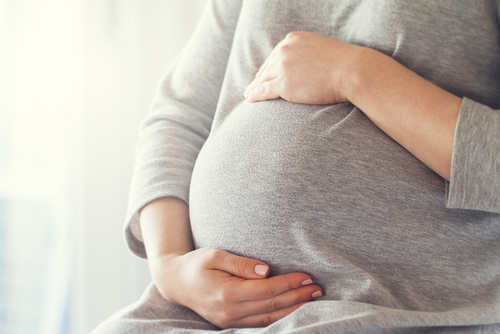Hospital visits related to cannabis use during pregnancy increased 82% in Ontario since legalization, according to new research published in CMAJ (Canadian Medical Association Journal).
Emergency department (ED) visits and hospitalizations almost doubled between June 2015 and July 2021, although the absolute increase in visits related to cannabis in pregnancy was small — from 11 to 20 per 100,000 pregnancies. Cannabis use in Canada was legalized on October 17, 2018.
In addition, babies born to people who visited the ED or were hospitalized for cannabis use during pregnancy showed relatively high rates of severe negative outcomes, such as low birth weight, preterm birth and admission to the neonatal intensive care unit (NICU).
“While these events — capturing very harmful patterns of cannabis use — are fortunately rare, we are concerned that they may reflect much larger increases in overall cannabis use in pregnant people following legalization,” says lead author Dr. Daniel Myran, a family physician and fellow at the Bruyère Research Institute and The Ottawa Hospital, and postdoctoral trainee at ICES.
Conducted by researchers from ICES, Bruyère Research Institute, The Ottawa Hospital and Unity Health Toronto, the study included data on 980,398 pregnancies from 691,242 individuals between January 2015 and July 2021 in Ontario, Canada. In total, 540 pregnant people had an acute care visit (ED visit or hospitalization) for cannabis use, with most events (72%) being ED visits. The most common reasons included harmful cannabis use (58%), cannabis dependence or withdrawal (22%) and cannabis poisoning (13%).
The researchers also noted that severe morning sickness during pregnancy appears to be a risk factor for these visits.
“Severe morning sickness — or what is called ‘hyperemesis gravidarum’ — was frequently seen among individuals who had an acute care visit for cannabis use in pregnancy,” says senior author Andrea Simpson, adjunct scientist at ICES and an obstetrician and minimally invasive gynecologic surgeon at St. Michael’s Hospital, a site of Unity Health Toronto. “Although we can’t say for sure whether they were presenting with vomiting as a result of cannabis use, or using cannabis to treat morning sickness, it does raise concern that more pregnant individuals perceive cannabis use in pregnancy to be less risky since legalization.”
During the study period, no increase was seen in acute care visits for use of alcohol or opioids during pregnancy, and visits for depression and anxiety decreased. The authors suggest that, although cause and effect cannot be determined as their study was observational, their findings add to evidence of harms of cannabis use in pregnancy.
“Patients with acute care for cannabis use during pregnancy may benefit from high-risk obstetrical care,” write the authors.
“Our findings highlight the importance of universal screening and suggest that pregnant people with a history of substance use, mental health conditions or severe morning sickness may benefit from repeated screening and counselling during pregnancy, without stigma.”
“Acute care related to cannabis use during pregnancy after the legalization of nonmedical cannabis in Ontario” was published May 23, 2023.


